Reading comprehension Reading Non-Fiction Worksheets for Ages 4-8
42 filtered results
-
From - To
Enhance your child's reading skills with our engaging Reading Comprehension Non-Fiction Worksheets for ages 4-8! Our carefully designed worksheets aim to boost young learners' understanding of various non-fiction topics, encouraging curiosity and critical thinking. With age-appropriate content, these activity sheets foster skills such as identifying main ideas, answering questions, and making connections to real-world concepts. Perfect for at-home learning or classroom activities, our resources are specifically tailored to captivate young minds. Whether exploring science, animals, or cultures, your little ones will develop a love for reading while gaining essential comprehension abilities. Start your child's literacy journey today!
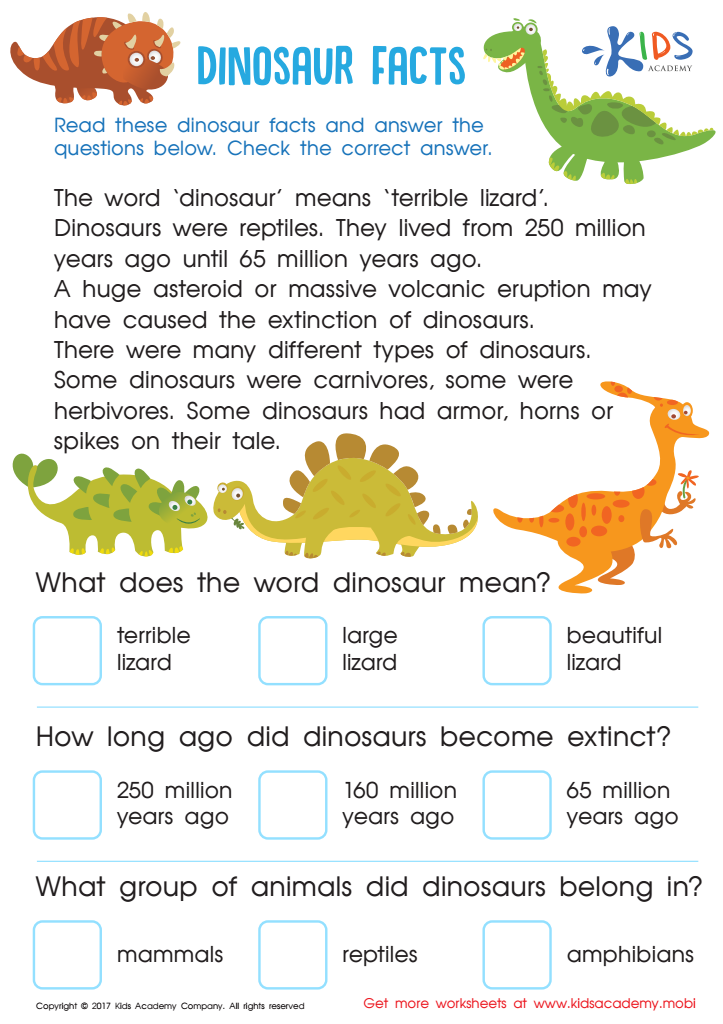

Dinosaur Facts Worksheet
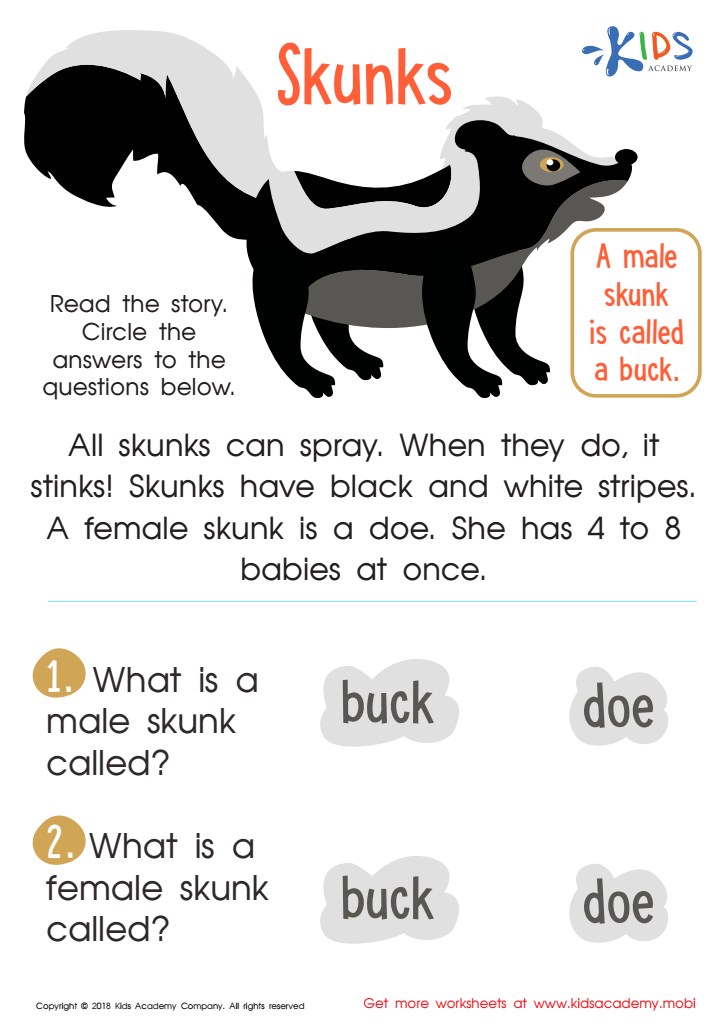

Skunks Worksheet
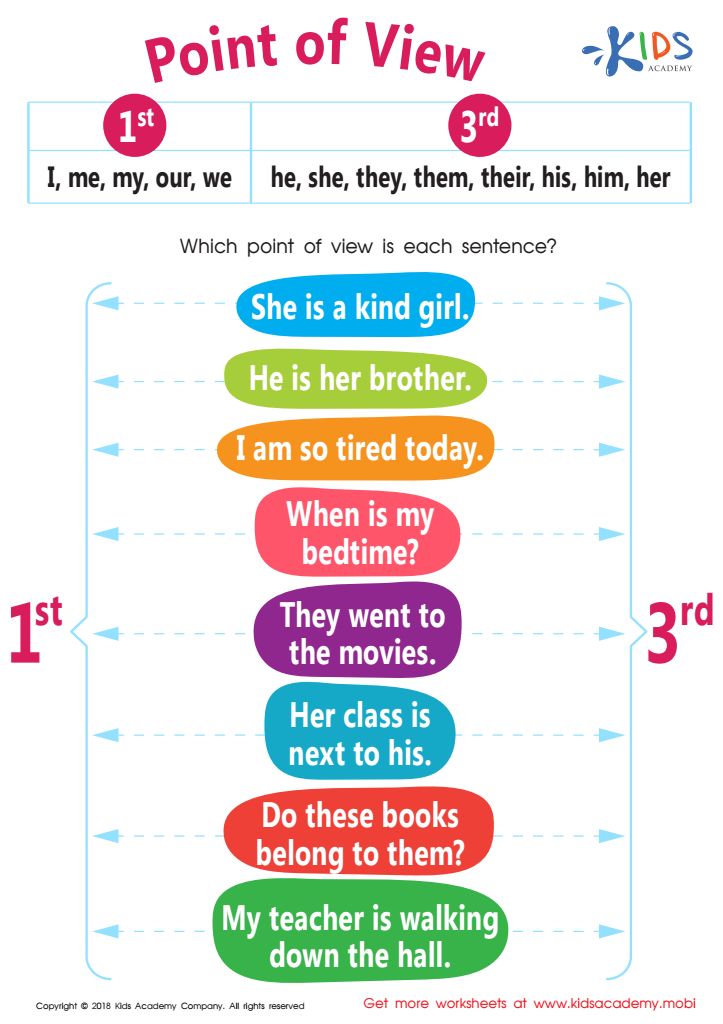

Point of View Worksheet
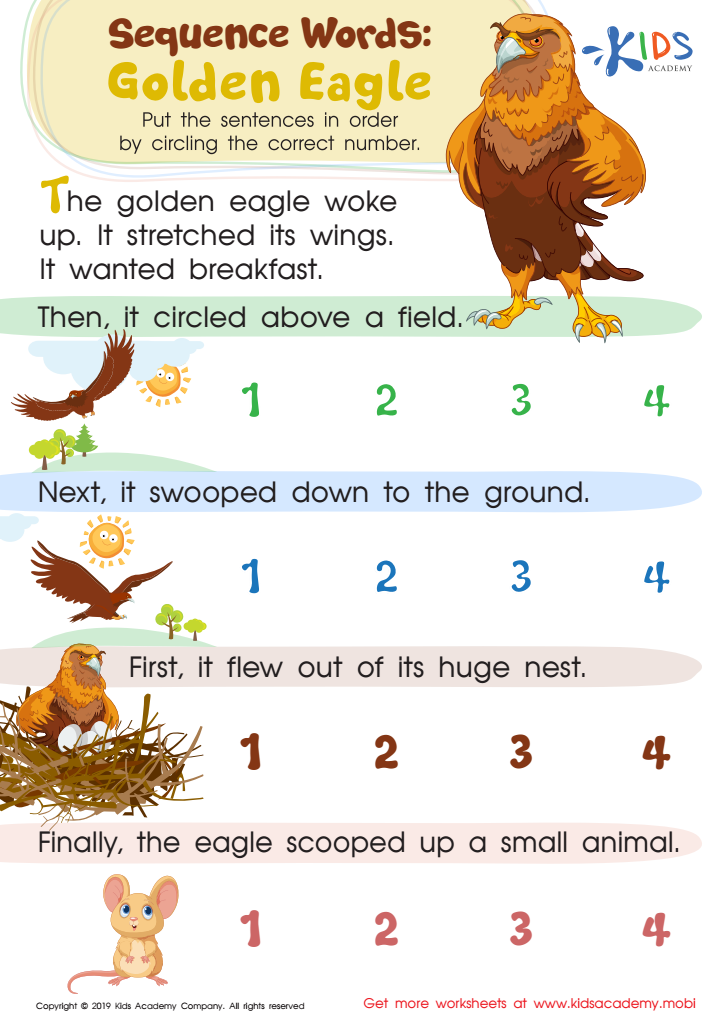

Sequence Word Eagle Worksheet
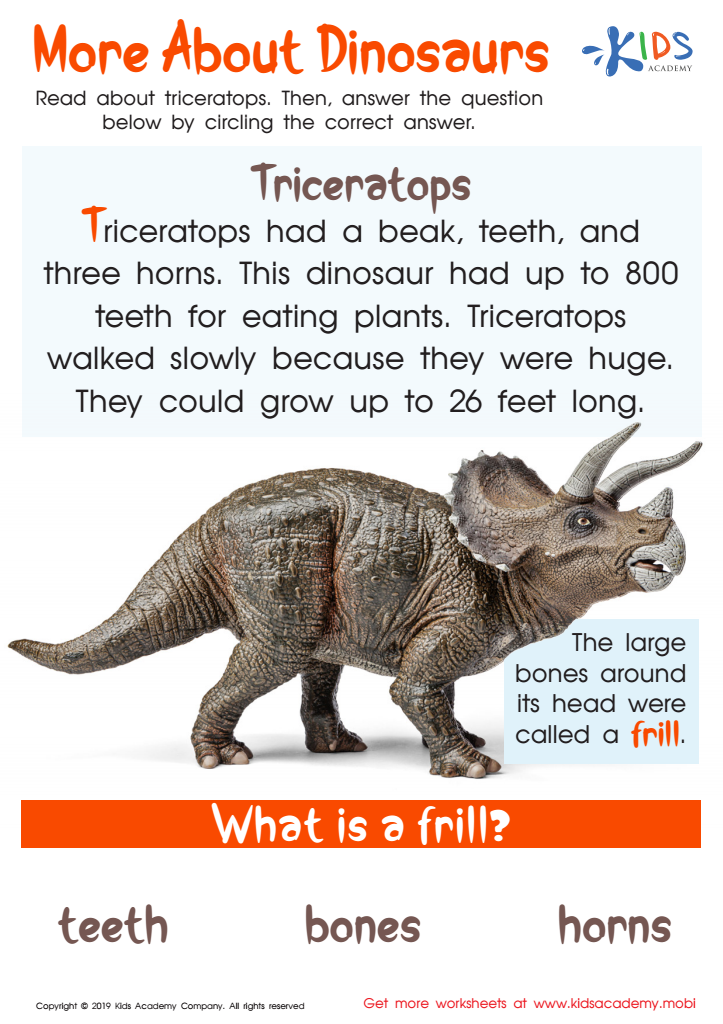

More About Dinosaurs Worksheet
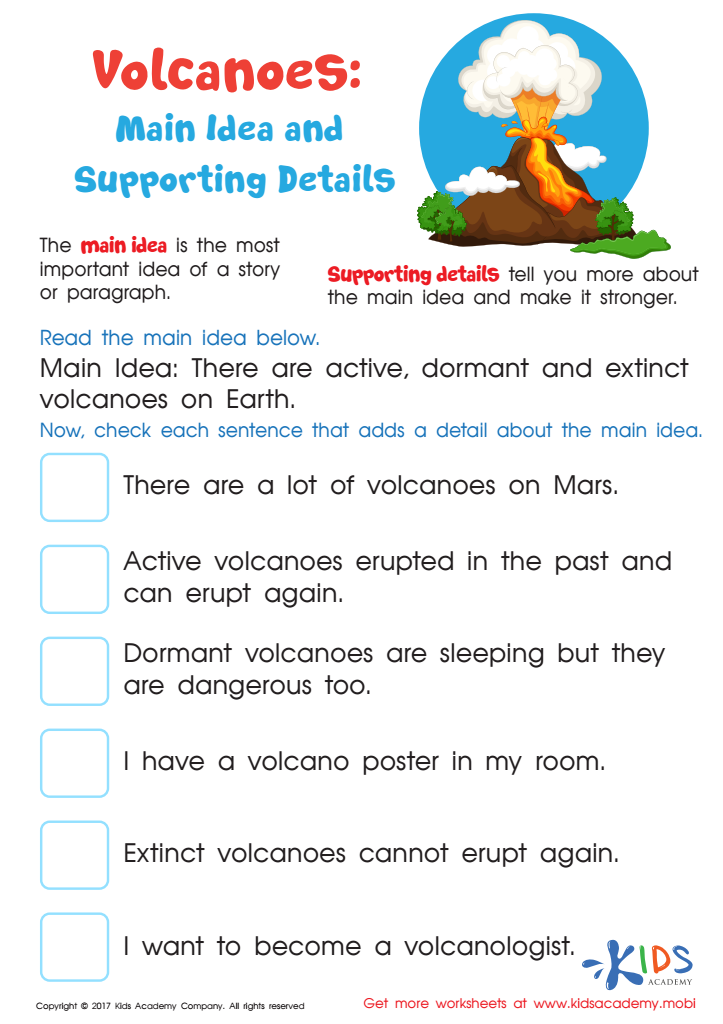

Volcano Facts Worksheet
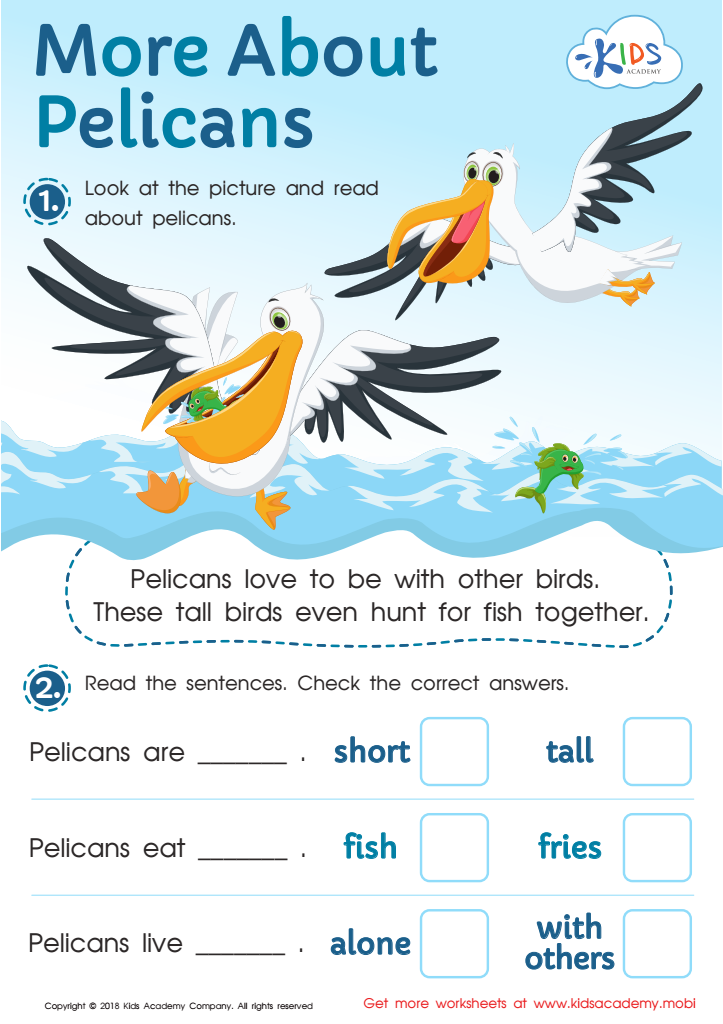

More About Pelicans Worksheet
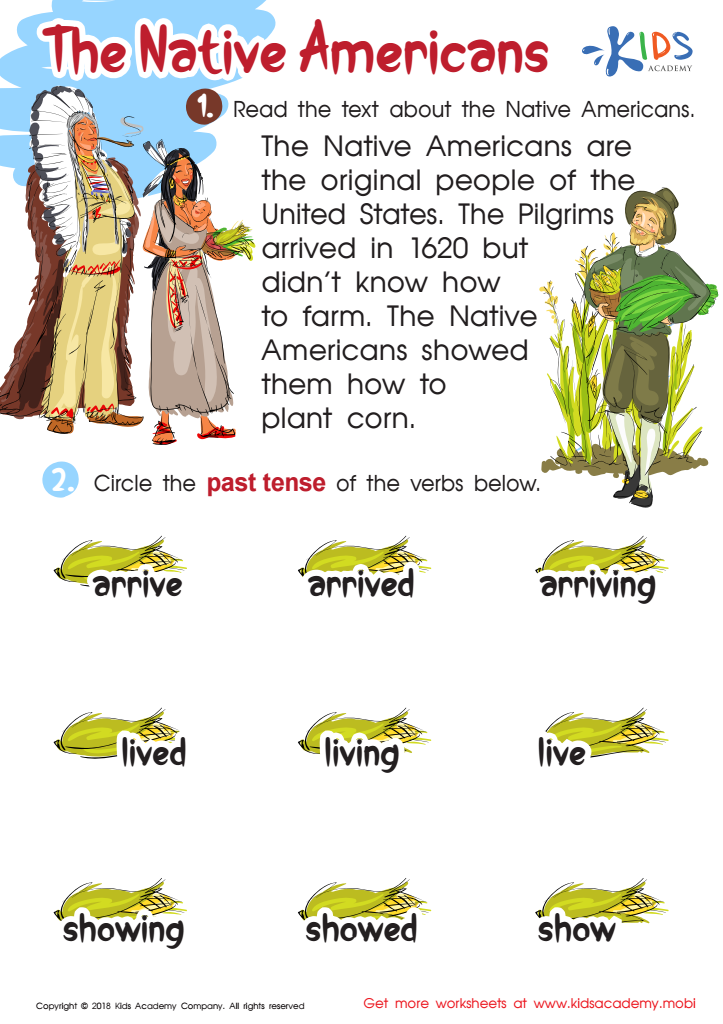

The Native Americans Worksheet
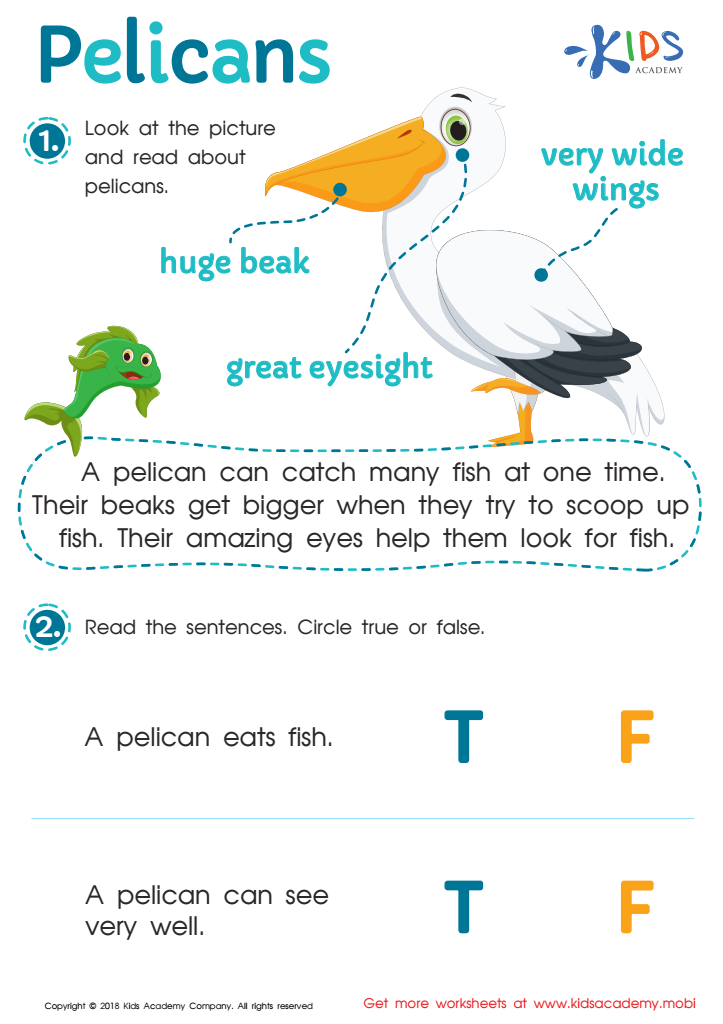

Pelicans Worksheet
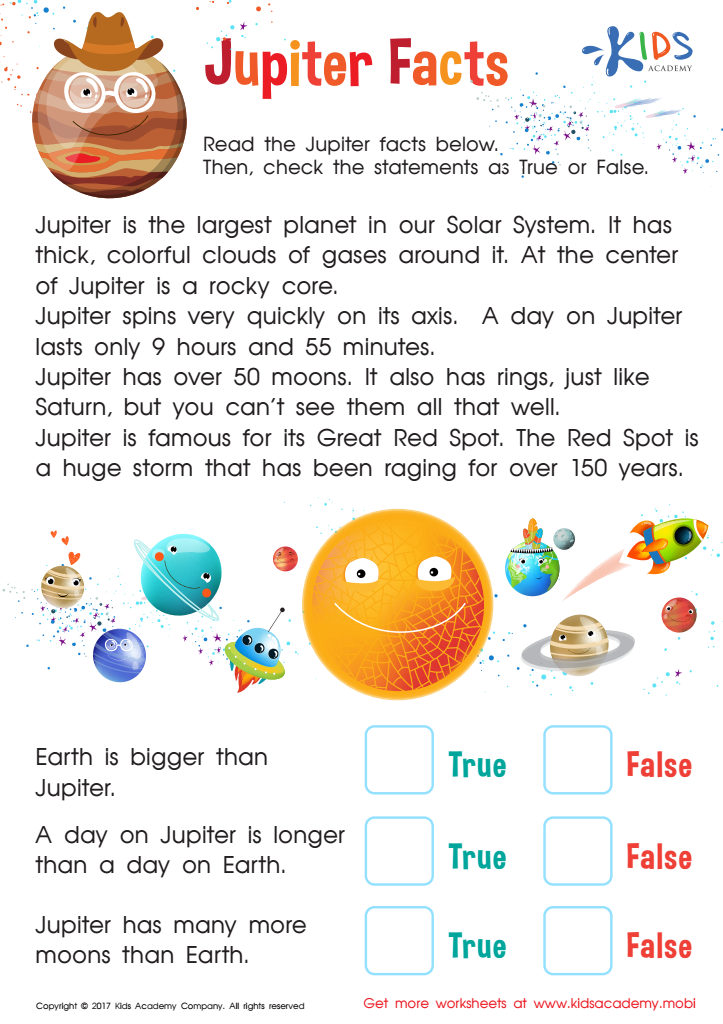

Jupiter Facts Worksheet


The Dentist Worksheet
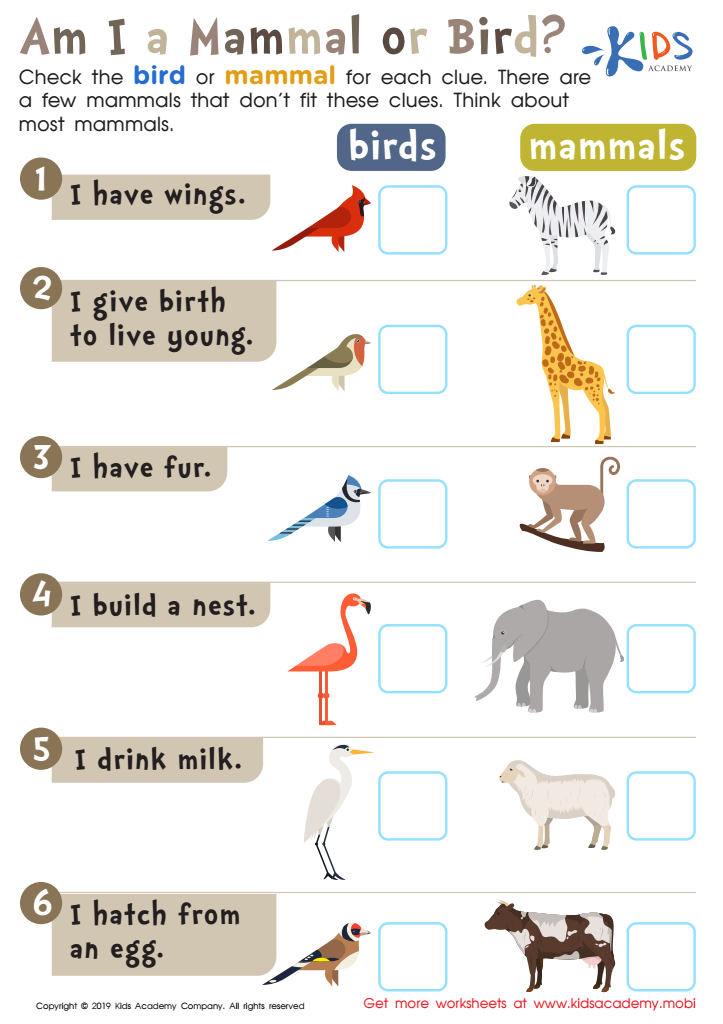

Am I a Mammal or Bird? Worksheet
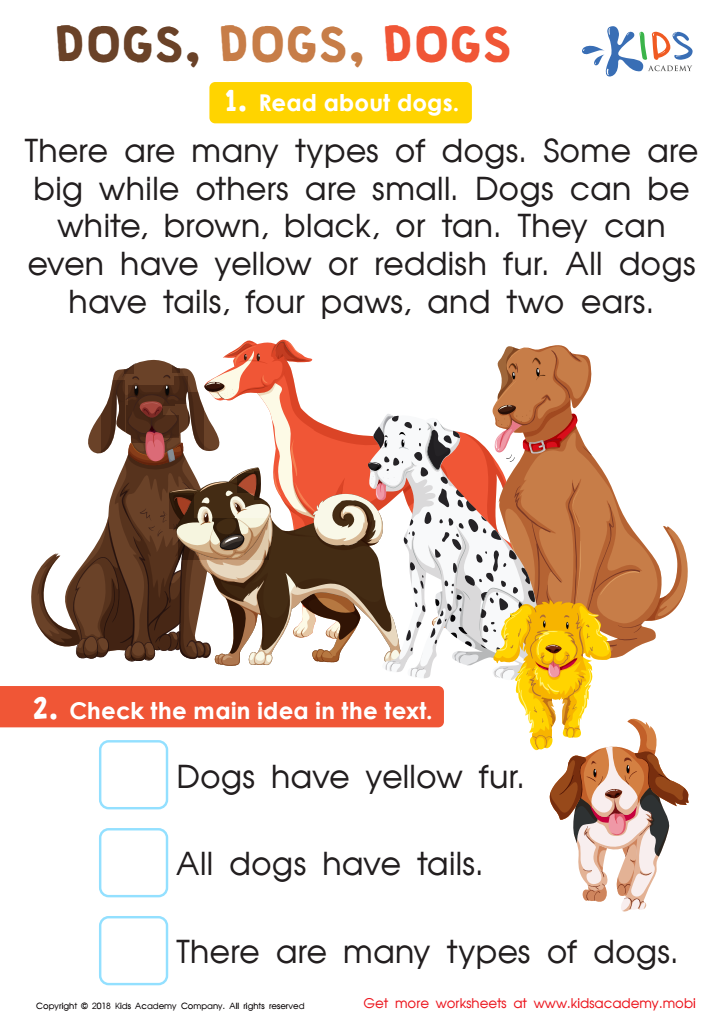

Dogs, Dogs Worksheet
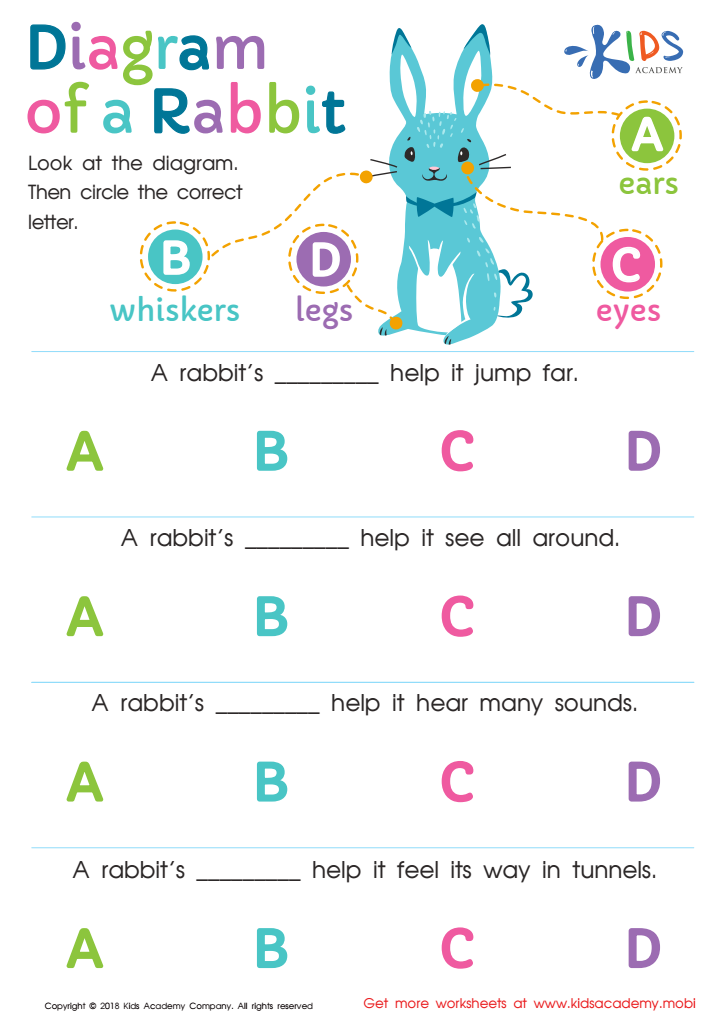

Diagram of a Rabbit Worksheet
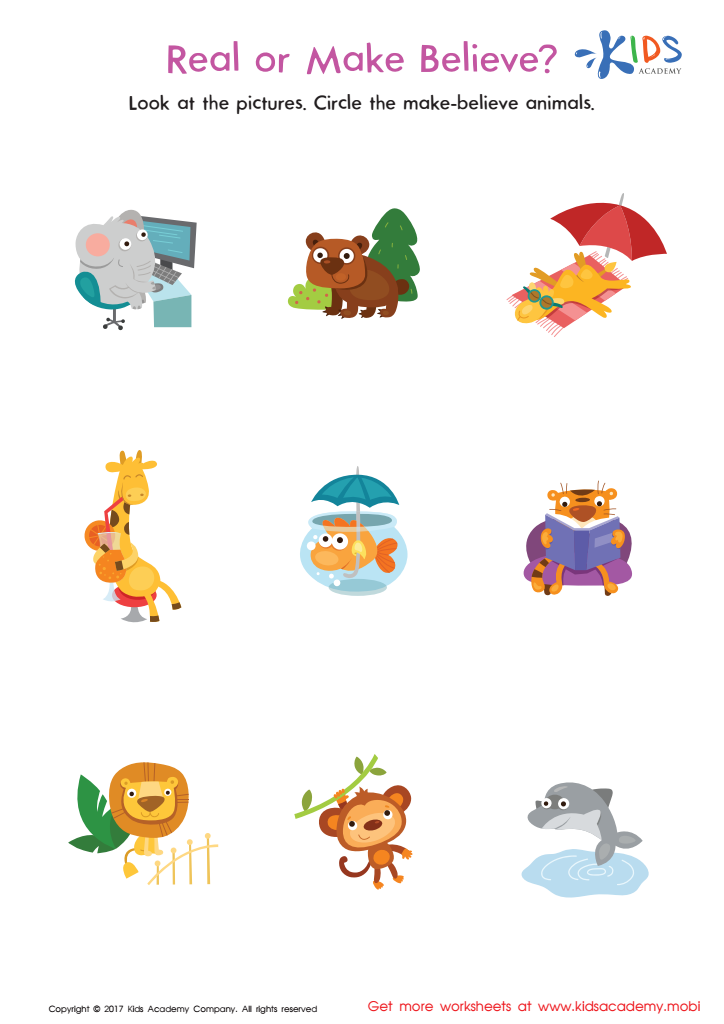

Fact or Make Believe Worksheet
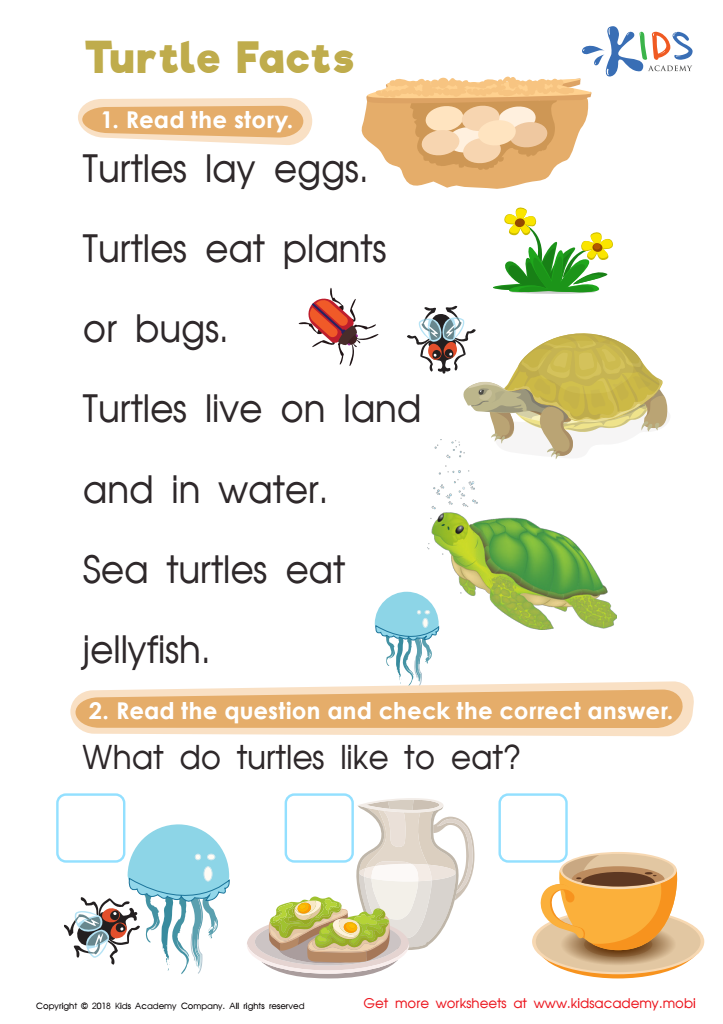

Turtle Facts Worksheet
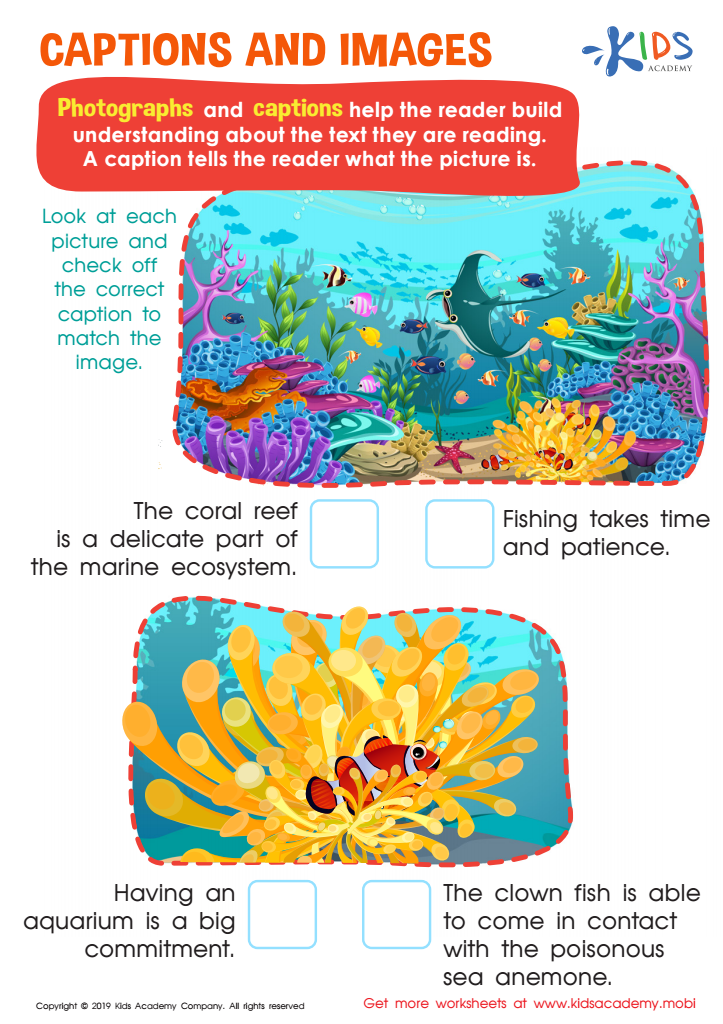

Captions and Images Worksheet
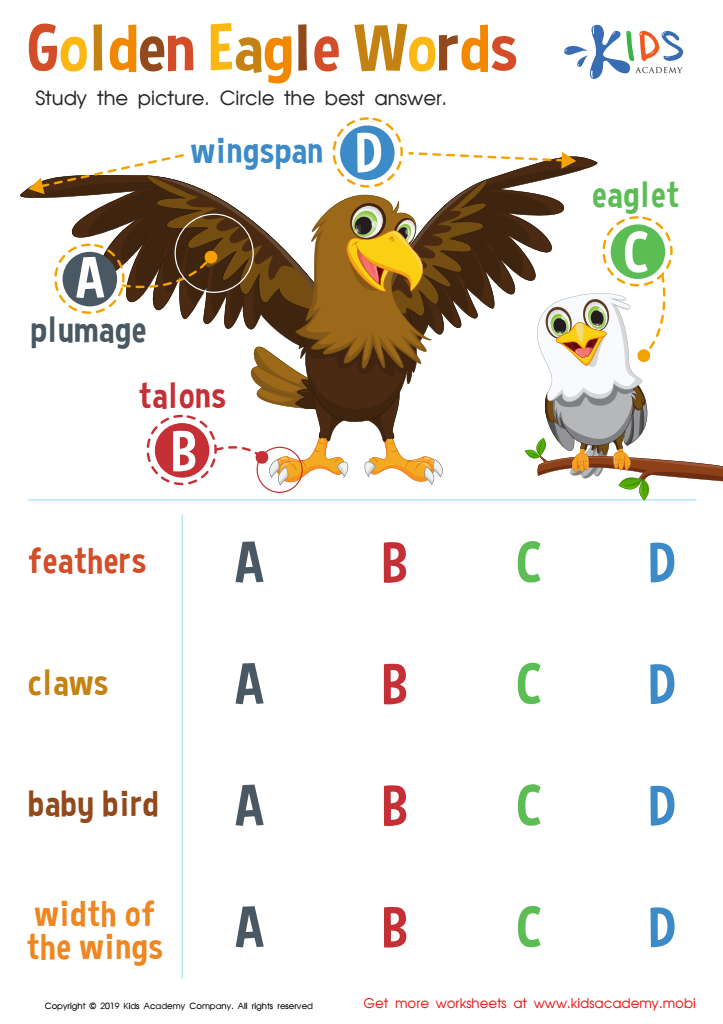

Golden Eagle Words Worksheet
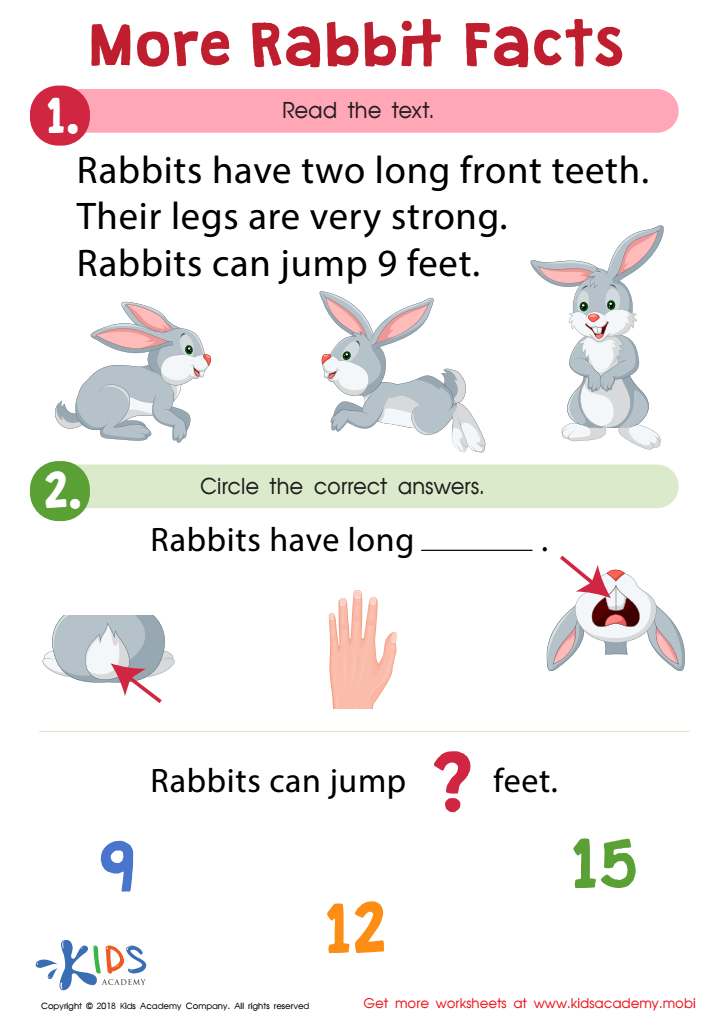

More Rabbit Facts Worksheet
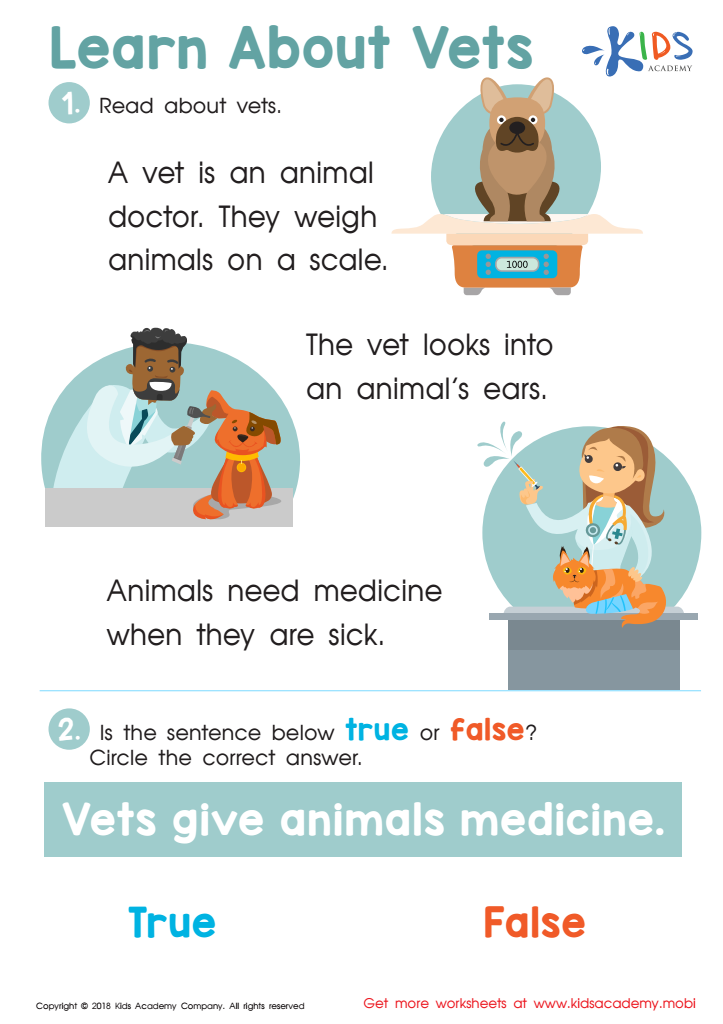

Learn About Vets Worksheet
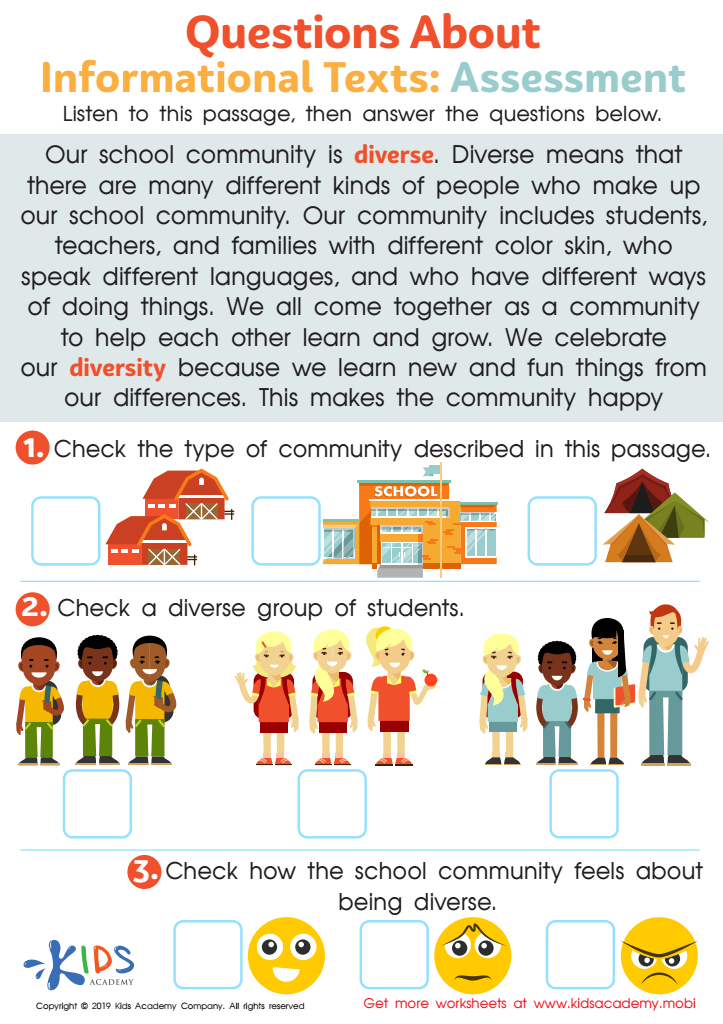

Questions About Informational Texts: Assessment 1 Worksheet
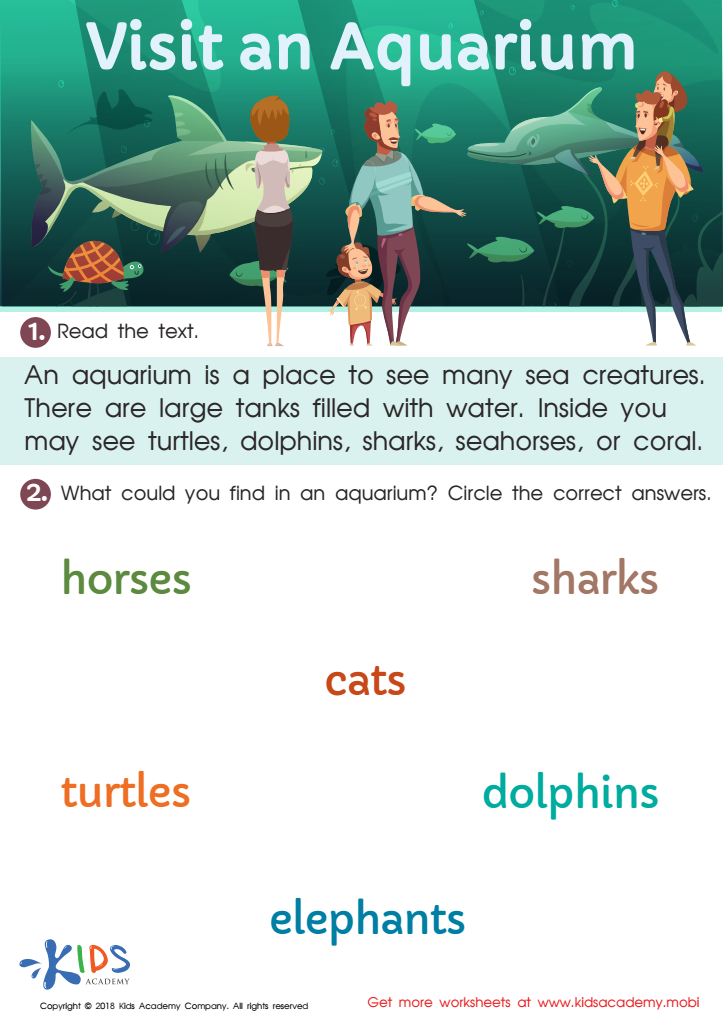

Visit an Aquarium Worksheet
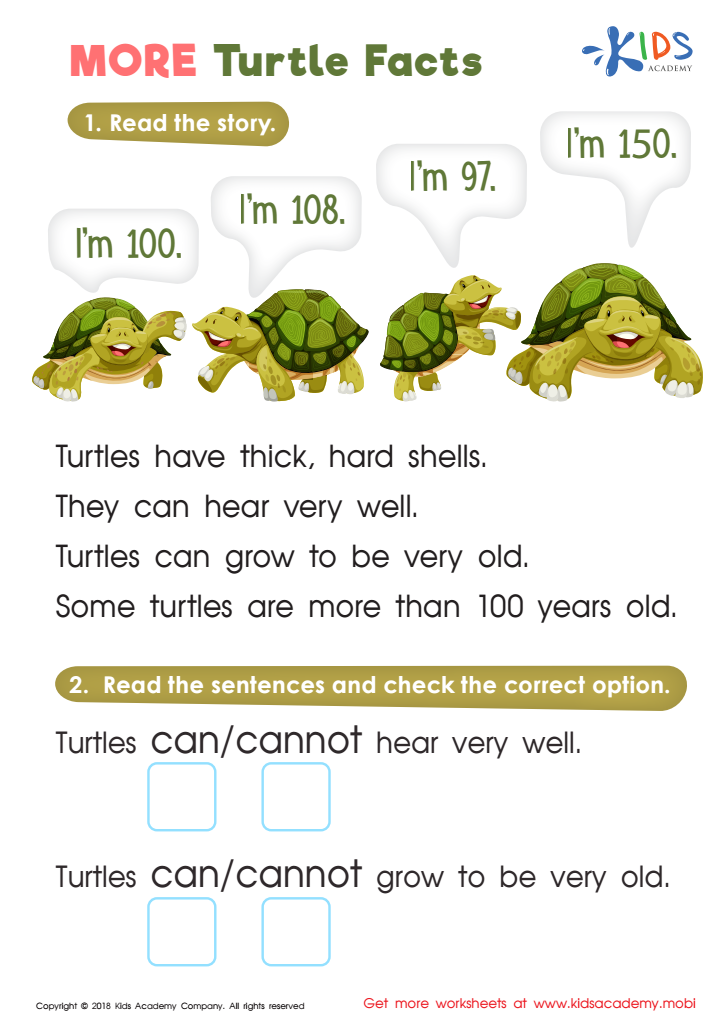

More Turtle Facts Worksheet
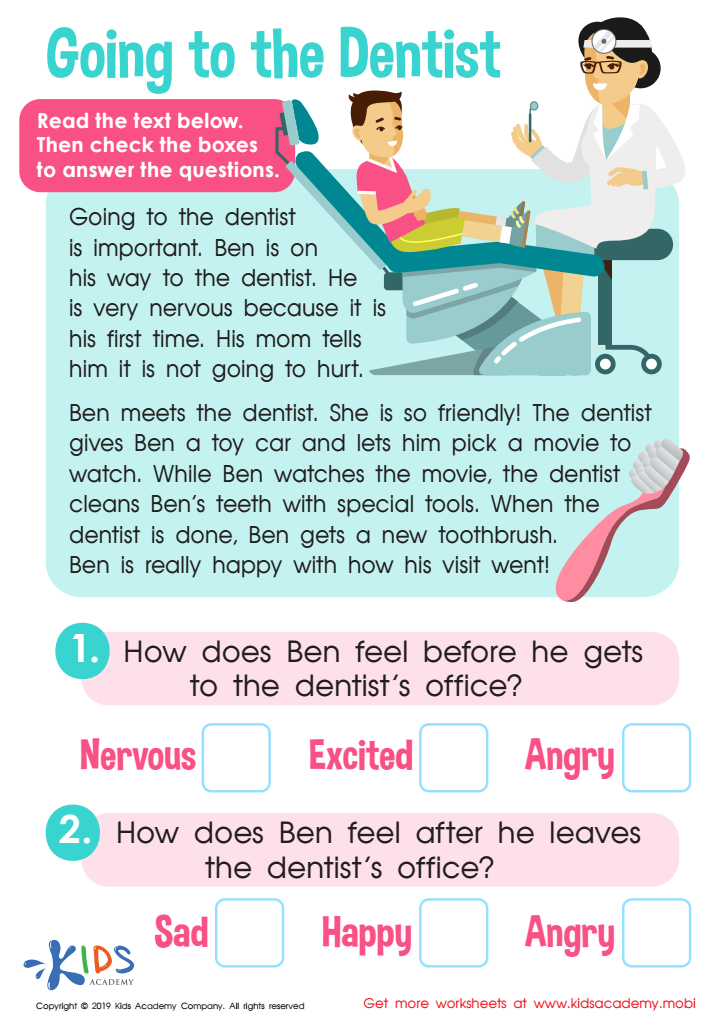

Going to the Dentist Worksheet
Reading comprehension, especially non-fiction, is crucial for young children aged 4-8 as it forms the foundation for lifelong learning and critical thinking. Non-fiction texts introduce children to a wide array of subjects, sparking curiosity and encouraging exploration beyond fiction. They learn to identify facts, concepts, and practical information, which enhances their understanding of the world around them.
When parents and teachers focus on reading comprehension, they equip children not just to decode words but to grasp meaning and context. This skill is vital for academic success; as children progress through school, they encounter increasingly complex texts, and strong comprehension skills in early years will set them up for a smoother transition.
Moreover, engaging with non-fiction builds vocabulary and supports informational literacy. Children become adept at summarizing, questioning, and making inferences, fostering a more analytical mindset. This ability to evaluate information critically is increasingly important in today’s information-rich society.
Ultimately, prioritizing reading comprehension in non-fiction not only helps children gain knowledge but also instills confidence in their abilities to navigate various topics, preparing them for future challenges in learning and life. Parents and teachers should actively promote these skills to support the overall development of their children.
 Assign to My Students
Assign to My Students



















